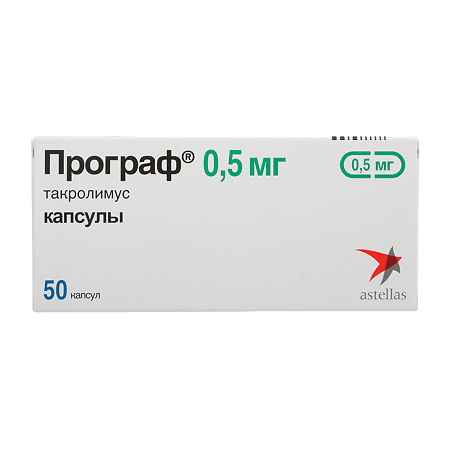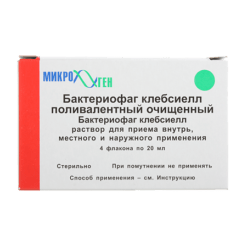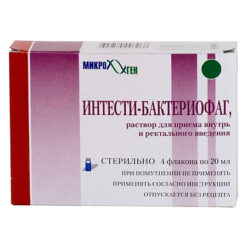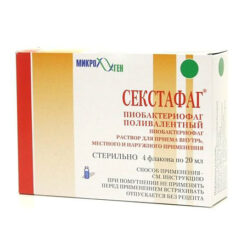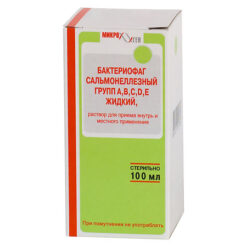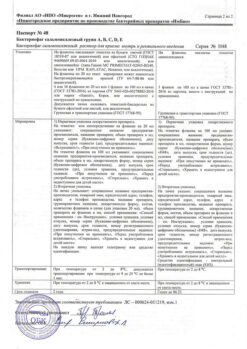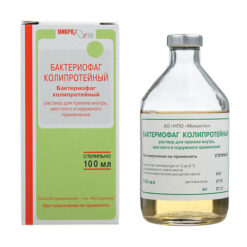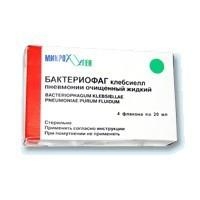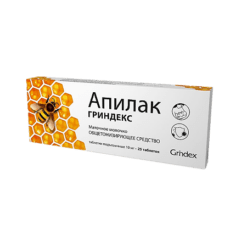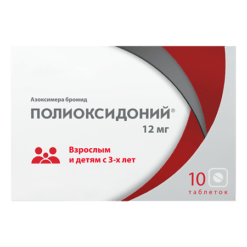No products in the cart.
Prograf, 0.5 mg capsules 50 pcs
€1.00
Out of stock
(E-mail when Stock is available)
Description
Prograf is an immunosuppressant of the macrolide group.
At the molecular level the effects of tacrolimus are mediated by binding to the cytosolic protein (FKBP12) which is responsible for intracellular accumulation of the drug.
The FKBP12-tacrolimus complex binds specifically and competitively to calcineurin and inhibits it, resulting in calcium-dependent inhibition of T-cell signal transduction pathways, thus preventing transcription of a discrete group of lymphokine genes.
Tacrolimus is a highly active immunosuppressive drug: suppresses the formation of cytotoxic lymphocytes, which are mainly responsible for transplant rejection, reduces T-cell activation, T-helper-dependent B-cell proliferation, and lymphokine formation (such as interleukins-2, -3 and γ-interferon) and interleukin-2 receptor expression.
Indications
Indications
Prevention and treatment of liver, kidney and heart allograft rejection, including those resistant to standard immunosuppressive therapy regimens.
Pharmacological effect
Pharmacological effect
Prograf is an immunosuppressant of the macrolide group.
At the molecular level, the effects of tacrolimus are mediated by binding to a cytosolic protein (FKBP12), which is responsible for the intracellular accumulation of the drug.
The PKBP12-tacrolimus complex specifically and competitively binds to and inhibits calcineurin, resulting in calcium-dependent inhibition of T-cell signaling transduction pathways, thereby preventing the transcription of a discrete group of lymphokine genes.
Tacrolimus is a highly active immunosuppressive drug: it suppresses the formation of cytotoxic lymphocytes, which are mainly responsible for transplant rejection, reduces the activation of T cells, T-helper-dependent proliferation of B cells, as well as the formation of lymphokines (such as interleukins-2, -3 and interferon-γ), and the expression of the interleukin-2 receptor.
Active ingredient
Active ingredient
Tacrolimus
Composition
Composition
1 caps. contains tacrolimus 0.5 mg
Pregnancy
Pregnancy
Results from preclinical and human studies indicate that the drug may cross the placenta.
Since the safety of Prograf in pregnant women has not been well established, this drug should not be prescribed to them unless the potential benefit of treatment justifies the potential risk to the fetus.
Preclinical and human studies indicate that tacrolimus is excreted in breast milk.
Since undesirable effects on newborn babies cannot be ruled out, women taking Prograf should not breastfeed.
Contraindications
Contraindications
Known hypersensitivity to tacrolimus or other macrolides.
Known hypersensitivity to polyoxyethylated hydrogenated castor oil (HCO-60) or structurally related components.
Side Effects
Side Effects
Many of the adverse drug reactions stated below are reversible and/or decrease with reduced dosage. With oral administration, the incidence of adverse drug reactions is lower than with intravenous administration. The reactions are listed below in descending order, depending on the frequency of development:
very often – ≥1/10; often – ≥1/100,
Cardiovascular system: very often – hypertension; often – hypotension, tachycardia, cardiac arrhythmia and conduction disturbances, thromboembolic and ischemic manifestations, angina pectoris, vascular diseases; uncommon – abnormalities in ECG parameters, heart attack, heart failure, shock, myocardial hypertrophy, cardiac arrest.
Gastrointestinal and liver diseases: very often – diarrhea, nausea and/or vomiting; often – gastrointestinal dysfunction (for example, dyspepsia), abnormalities in the levels of liver enzymes, abdominal pain, constipation, changes in body weight and appetite, inflammation and ulcers in the gastrointestinal tract, jaundice, diseases of the biliary tract and gallbladder; uncommon – ascites, intestinal obstruction (ileus), liver tissue damage, pancreatitis; rarely – liver failure.
Blood and lymphatic system: often – anemia, leukopenia, thrombocytopenia, hemorrhage, leukocytosis, coagulation disorders; infrequently – insufficiency of the hematopoietic system, incl. pancytopenia, thrombotic microangiopathy.
Kidneys: very often – impaired renal function (for example, increased serum creatinine levels); often – damage to kidney tissue, renal failure; infrequently – proteinuria.
Metabolism and electrolytes: very often – hyperglycemia, hyperkalemia, diabetes mellitus; often – hypomagnesemia, hyperlipidemia, hypophosphatemia, hypokalemia, hyperuricemia, hypocalcemia, acidosis, hyponatremia, hypovolemia, dehydration; uncommon – hypoproteinuria, hyperphosphatemia, increased amylase levels, hypoglycemia.
Musculoskeletal system: often – convulsions; infrequently – myasthenia gravis, joint diseases.
Nervous system/sensory system: very often – tremor, headache, insomnia; often – impaired sensitivity (for example, paresthesia), visual impairment, confusion, depression, dizziness, agitation, neuropathy, convulsions, lack of coordination, psychosis, anxiety, nervousness, sleep disturbance, impaired consciousness, emotional lability, hallucinations, hearing impairment, impaired thinking, encephalopathy; uncommon – hypertension, eye diseases, amnesia, cataracts, speech impairment, paralysis, coma, deafness; very rarely – blindness.
Respiratory system: often – impaired respiratory function (for example, shortness of breath), pleural effusion; infrequently – atelectasis, bronchospasm.
Skin: often – itching, alopecia, rash, sweating, acne, photosensitivity; uncommon – hirsutism; rarely – Lyell’s syndrome; very rarely – Stevens-Johnson syndrome.
Mixed manifestations: very often – localized pain (for example, arthralgia); often – fever, peripheral edema, asthenia, difficulty urinating; uncommon – genital disorders in women, incl. swelling.
Neoplasms: Patients receiving immunosuppressive therapy are at increased risk of developing malignancies. When using tacrolimus, the development of both benign and malignant tumors was noted, incl. development of Epstein-Barr virus (EBV) – associated lymphoproliferative diseases and skin cancer.
Hypersensitivity reactions: allergic and anaphylactic reactions.
Infections: in patients receiving tacrolimus, as in treatment with other immunosuppressive drugs, there is an increased risk of developing infectious diseases (viral, bacterial, fungal, protozoal). The course of previously diagnosed infectious diseases may worsen.
Interaction
Interaction
Tacrolimus is not compatible with polyvinyl chloride (PVC).
If the contents of the capsules must be administered through a nasogastric tube, the latter should not contain polyvinyl chloride.
Overdose
Overdose
Clinical experience in the treatment of overdose is limited.
Several cases of accidental overdose of the drug have been reported, with the following symptoms observed: tremor, headache, nausea, vomiting, infection, urticaria, lethargy, increased blood urea nitrogen, increased serum creatinine concentration, and increased alanine aminotransferase levels.
Storage conditions
Storage conditions
At a temperature not exceeding 25 °C, in original packaging
Shelf life
Shelf life
3 years
Manufacturer
Manufacturer
Astellas Ireland Co. Ltd, Netherlands
Additional information
| Shelf life | 3 years |
|---|---|
| Conditions of storage | At a temperature not exceeding 25 °C, in the original package |
| Manufacturer | Astellas Ireland Co. |
| Medication form | capsules |
| Brand | #Н/Д |
Related products
Buy Prograf, 0.5 mg capsules 50 pcs with delivery to USA, UK, Europe and over 120 other countries.

